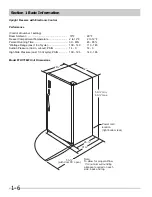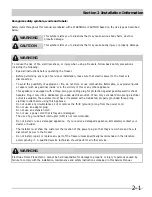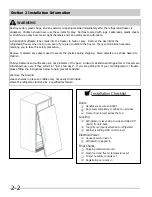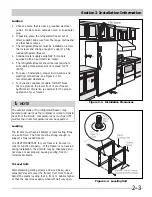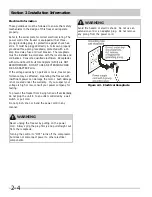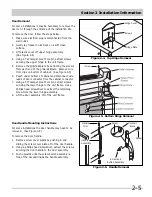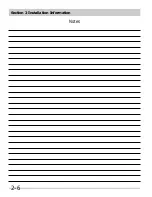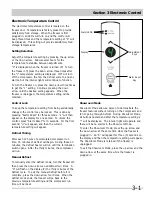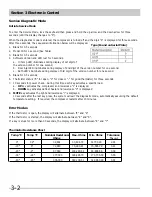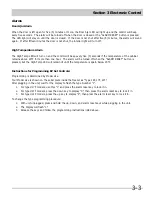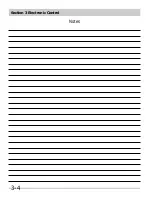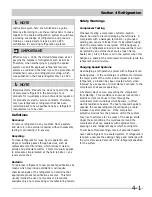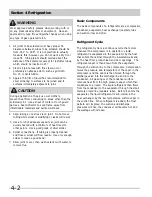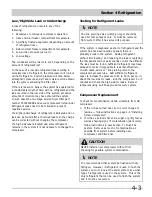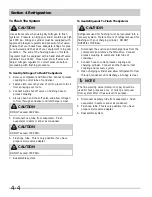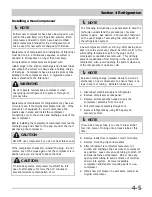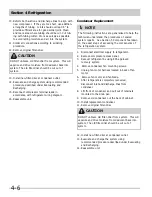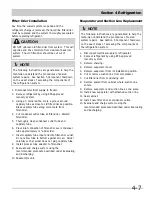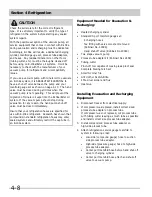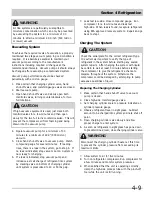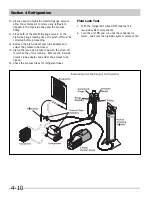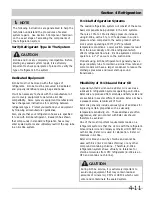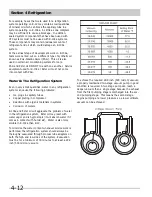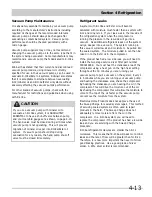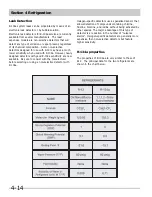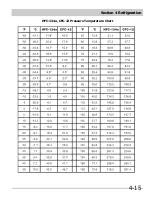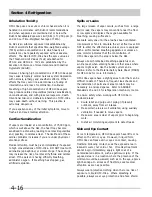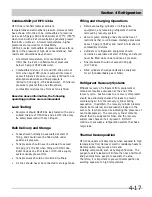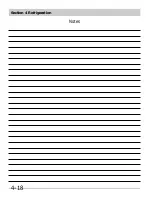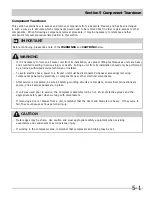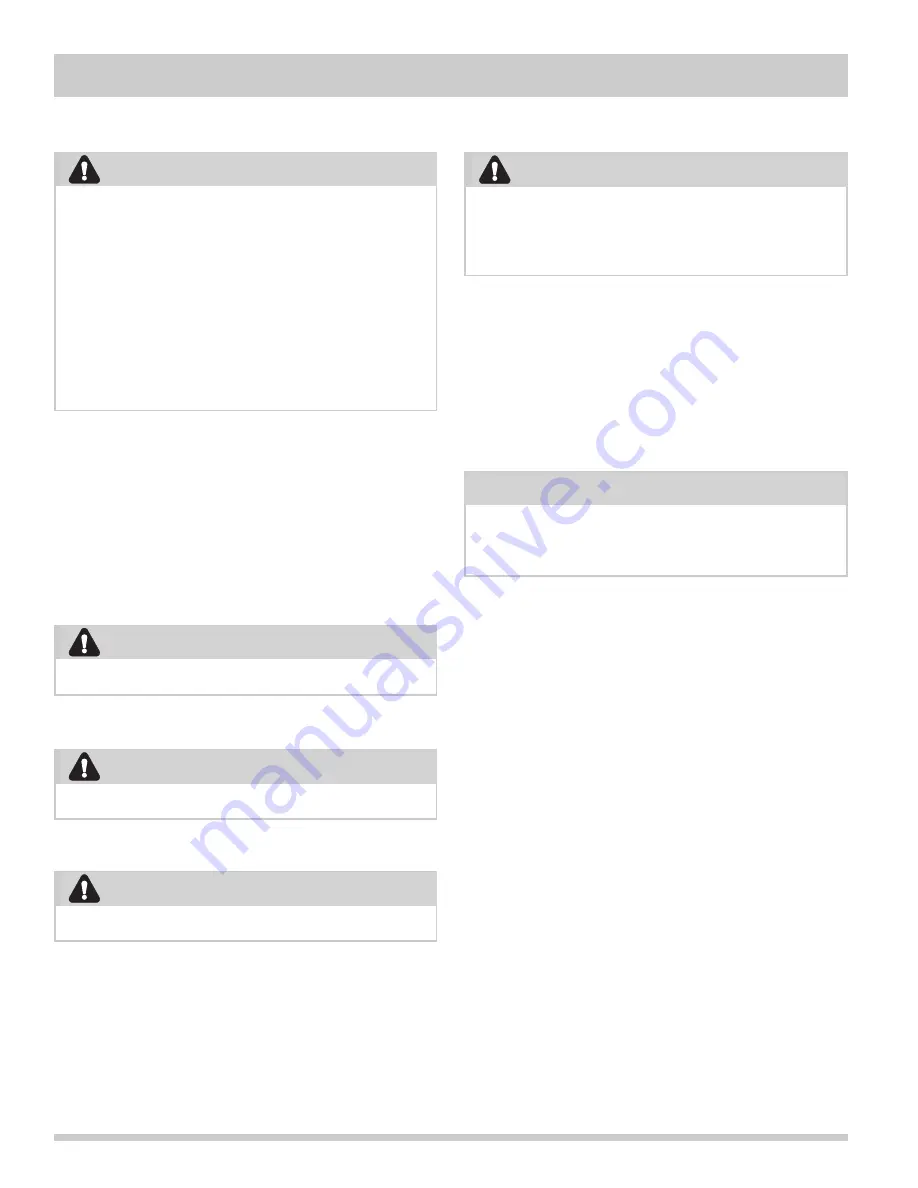
Section 4 Refrigeration
4-4
To Flush The System
To Use Dry Nitrogen To Flush The System:
1. Remove compressor and filter-drier. Connect process
coupling to outlet tube of condenser.
2. Fasten cloth over other end of coil to prevent old oil
from spraying over room.
3. Connect hand shut-off valve on flushing hose to
process coupling.
4. Slowly open hand shut-off valve and allow nitrogen
to flow through condenser until discharge is clear.
5. Disconnect cap tube from evaporator. Flush
evaporator in same manner as condenser.
6. Flush cap tube. This is only possible if you have
proper service valve adapter.
7. Reassemble system.
To Use Refrigerant To Flush The System:
1. Disconnect the suction and discharge lines from the
compressor and remove the filter-drier. Connect
process coupling to outlet and inlet tube of
condenser.
2. Connect hose to outlet process coupling and
charging cylinder. Connect another hose to inlet
coupling and recovery system.
3. Open charging cylinder and allow refrigerant to flow
through condenser until discharge into bag is clear.
4. Disconnect capillary tube from evaporator. Flush
evaporator in same manner as condenser.
5. Flush cap tube. This is only possible if you have
proper service valve adapter.
6. Reassemble system.
Use extreme care when using Dry Nitrogen to flush
systems. Pressure in nitrogen cylinder could be as high
as 2000 psi. Nitrogen cylinder must be equipped with
approved pressure regulator and pressure relief valve.
Ensure that your hoses have adequate ratings for pres-
sure involved and that all of your equipment is in good
condition. The end of the flushing hose on this tank
regulator must be equipped with a hand shut-off valve
(Robinair No. 40380). Close hand shut-off valve and
adjust nitrogen regulator to correct pressure before
proceeding with flushing procedure.
CAUTION
Refrigerant used for flushing must be recovered into a
recovery system. Meter amount of refrigerant used for
flushing with your charging cylinder. DO NOT
OVERFILL THE BAG.
CAUTION
DO NOT exceed 300 PSIG.
CAUTION
DO NOT exceed 300 PSIG.
CAUTION
DO NOT exceed 150 PSIG.
CAUTION
The line piercing valve (clamp-on type) should be
used for test purposes only. It must be removed
from system after it has served its purpose.
NOTE
Содержание FFH17F8HW0
Страница 2: ......
Страница 14: ...Section 2 Installation Information 2 6 Notes ...
Страница 18: ...Section 3 Electronic Control 3 4 Notes ...
Страница 33: ...Section 4 Refrigeration 4 15 HFC 134a CFC 12 Pressure Temperature Chart ...
Страница 36: ...Section 4 Refrigeration 4 18 Notes ...
Страница 48: ...Section 5 Component Teardown 5 12 Notes ...
Страница 53: ...Section 7 Wiring Diagram 7 1 ...
Страница 54: ...Section 7 Wiring Diagram 7 2 Notes ...

